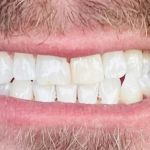Can Stress Contribute to Tooth Decay?
- Understanding Stress and Its Effect on Tooth Decay
- How Stress Affects Your Teeth
- How to Prevent Tooth Decay Caused by Stress
- Effective Stress Reduction Tips for Better Oral Health
Understanding Stress and Its Effect on Tooth Decay
Stress is a common factor in many people's lives, and while its impact on mental health is well-known, many don't realize how it can also affect their physical health—specifically their dental health. Tooth decay is often linked to poor oral hygiene, but stress can play a significant role in exacerbating the problem. But how exactly does stress contribute to tooth decay? Let's explore this connection in more detail.
How Stress Affects Your Teeth
When we experience stress, our body releases hormones like cortisol, which can impact various systems, including our oral health. Stress can lead to behaviors that directly harm your teeth, such as:
- Teeth Grinding and Jaw Clenching: Known as bruxism, this behavior is often triggered by stress. Over time, grinding your teeth can lead to tooth wear, cracks, and even tooth loss.
- Poor Oral Hygiene Habits: Stress often leads to neglecting daily routines, including brushing and flossing. When oral hygiene declines, plaque builds up, leading to cavities and gum disease.
- Increased Sugar Consumption: Stress may drive some people to crave sugary foods and drinks, which feed the bacteria in your mouth that cause tooth decay.
- Dry Mouth: Stress can also reduce saliva production, leading to dry mouth. Saliva is essential for washing away food particles and bacteria. A lack of saliva can make your teeth more susceptible to decay.
All of these factors combined can lead to an increased risk of tooth decay, making stress a silent contributor to your dental health woes.
How to Prevent Tooth Decay Caused by Stress
Fortunately, there are steps you can take to protect your teeth from the harmful effects of stress. Here are a few effective strategies:
- Practice Relaxation Techniques: Incorporating relaxation exercises such as deep breathing, yoga, or meditation can help reduce stress and prevent habits like teeth grinding and jaw clenching.
- Maintain a Consistent Oral Hygiene Routine: Ensure you brush twice a day with fluoride toothpaste, floss daily, and use mouthwash to help prevent plaque buildup and tooth decay.
- Stay Hydrated: Drinking plenty of water helps keep your mouth moist and can combat the effects of dry mouth. Carry a water bottle to stay hydrated throughout the day.
- Chew Sugar-Free Gum: Chewing gum can stimulate saliva production, which helps protect your teeth and neutralizes acids in your mouth.
By addressing both the stress factors and the oral hygiene consequences, you can greatly reduce the risk of tooth decay caused by stress.
Effective Stress Reduction Tips for Better Oral Health
Managing stress is crucial for maintaining not only your mental well-being but also your oral health. Here are some practical tips to help you lower your stress levels and protect your teeth:
- Exercise Regularly: Physical activity can reduce stress hormones and increase endorphins, promoting overall mental and physical well-being.
- Sleep Well: Getting enough rest is important for managing stress. Aim for 7-9 hours of sleep each night to help your body recover and reduce stress.
- Talk to Someone: If stress is overwhelming, talking to a friend, family member, or therapist can help you manage your emotions and stress levels.
- Eat a Balanced Diet: Eating nutritious meals can help stabilize your mood and reduce the cravings for sugary foods that contribute to tooth decay.
By making these changes, you not only improve your overall health but also protect your teeth from the long-term effects of stress.
If you're concerned about how stress is affecting your oral health, consider visiting Dentistry Toothtruth for more tips and advice on maintaining good dental health during stressful times.







 Orlando Family Dentistry, LLC5.0 (16 review)
Orlando Family Dentistry, LLC5.0 (16 review) Charleston Dental Associates4.0 (440 review)
Charleston Dental Associates4.0 (440 review) Destination Dental Care4.0 (102 review)
Destination Dental Care4.0 (102 review) VM Dental Group4.0 (86 review)
VM Dental Group4.0 (86 review) Dr. Melanie Williamson, DMD5.0 (5 review)
Dr. Melanie Williamson, DMD5.0 (5 review) Northwest Endodontics4.0 (16 review)
Northwest Endodontics4.0 (16 review) The Importance of Oral Health Education During Pregnancy for a Healthy Pregnancy
The Importance of Oral Health Education During Pregnancy for a Healthy Pregnancy Best Tips for Brushing Your Teeth Properly for Healthy Gums: Essential Techniques for Oral Health
Best Tips for Brushing Your Teeth Properly for Healthy Gums: Essential Techniques for Oral Health Why Skipping Dental Checkups Can Lead to Bigger Oral Health Problems
Why Skipping Dental Checkups Can Lead to Bigger Oral Health Problems Advantages of Porcelain Dental Restorations
Advantages of Porcelain Dental Restorations How Can Diabetes Cause Tooth and Gum Problems? Preventing and Managing Oral Health Issues
How Can Diabetes Cause Tooth and Gum Problems? Preventing and Managing Oral Health Issues Healthy Habits for Promoting Good Oral Health and Hygiene: Tips for a Healthy Smile
Healthy Habits for Promoting Good Oral Health and Hygiene: Tips for a Healthy Smile